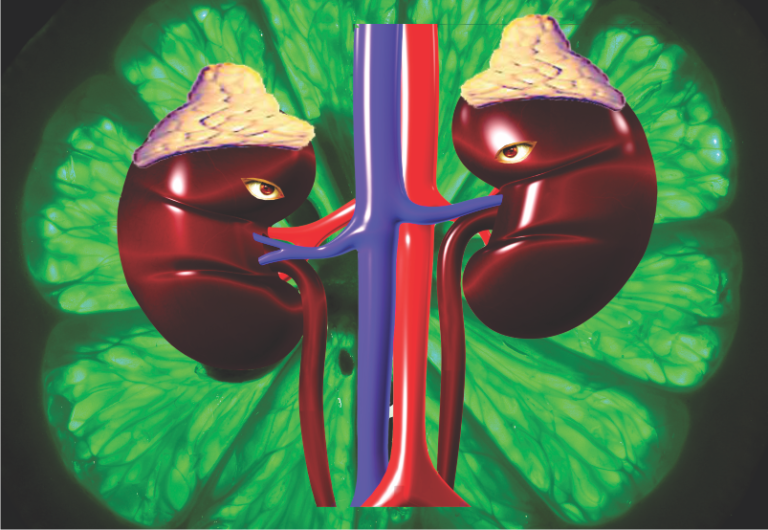Your adrenals are small glands that sit on top of your kidneys. The adrenals are part of your stress handling mechanism. When you experience acute stress, the adrenals kick in to provide you with the burst of energy you need to get out of the stressful situation. An example of this is a horse sensing a predator about to attack him. The adrenals kick in, secreting chemicals into the bloodstream, giving him the burst of energy he needs to run and escape from harm. Another example is the surge of quick energy and sharp mental focus one gets when narrowly avoiding a traffic accident. In a nutshell, the body slows or stops all functions (such as digestion) not necessary for either fighting or running. This acute (or Phase 1) adrenal response is perfectly normal and is designed to give us the increased mental clarity, super-strength and endurance necessary for us to escape from harm. It is our “fight or flight” response.
In our society today we are not often chased by mountain lions. Our stresses, which often manifest on a more mental or emotional level, often last weeks, months or even years. So, what happens when our body slows or stops all functions not necessary for “fight or flight” for an extended period of time? Chronic stressors result in the body going into Phase 2 adrenal response as the body is attempting to deal with this prolonged and unnatural stress. During this time cortisol levels continue to stay raised, while DHEA levels begin to decline. At this point a variety of symptoms such as irritability, anxiety, fatigue, sleep onset insomnia, low libido, frequent yawning, sweet cravings, back pain in the kidney area, muscle tension, digestive dysfunction, irritable bowel, low basal temperature and impaired immunity begin to occur.
As these heightened stress levels continue over a long period of time and the adrenals are not given the time and nutrients necessary to recover, the adrenals go into Phase 3. In Phase 3 there is still a period of resistance before adrenal fatigue reaches official clinical exhaustion. The symptoms that often appear at this stage include malaise, low mood, sleep maintenance insomnia (due to erratic cortisol surges), memory and cognitive challenges and a higher occurrence of chronic conditions like fibromyalgia, autoimmune disorders and chronic fatigue syndrome. “Adrenal fatigue” (in one phase or another) is probably the most common problem we see in our patients. It is also the most fun issue to help resolve because of the huge improvement in how good the patient feels once this issue begins to resolve.







